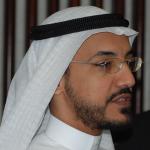 “Complete the pilgrimages … for the sake of God” Quran 2:196
“Complete the pilgrimages … for the sake of God” Quran 2:196
The 2014 Hajj was epidemic-free, according to Saudi Arabia’s acting health minister. In addition to the regular Hajj health regulations, this year the Saudi government decided to ban pilgrims from Mano river Union countries (Guinea, Liberia, and Sierra Leone) because of the Ebola threat. The World Health Organization said there was “no report of MERS-CoV among pilgrims,” and more than two million attended.
The threat of infectious disease outbreaks becoming a pandemic when pilgrims return home has always been a challenge to the Saudi health authorities. To address this, a network of surveillance units operated by field epidemiologists and connected to 141 primary care centres, 254 hospitals, and mobile laboratories were established. These units detect, investigate, and control infectious disease outbreaks, and conduct mass vaccination against selected infectious diseases. They also provide opportunities for training and research in collaboration with the field epidemiology training program, which is affiliated to King Saud University.
 Despite these efforts, outbreaks, such as the 2001 meningitis type W135 outbreak, could happen. Two Saudi studies show that almost half (44% – 46.5% ) of pilgrims did not take their required meningitis vaccine during the recommended period (10 days-3 year before arrival to Hajj), and therefore may become a potential source of infectious disease during Hajj.
Despite these efforts, outbreaks, such as the 2001 meningitis type W135 outbreak, could happen. Two Saudi studies show that almost half (44% – 46.5% ) of pilgrims did not take their required meningitis vaccine during the recommended period (10 days-3 year before arrival to Hajj), and therefore may become a potential source of infectious disease during Hajj.
The Saudi authorities do not currently directly supervise implementation of the strict Hajj health regulations outside its borders. Instead they have to depend on pilgrims’ host countries to ensure the validity of vaccination certificates presented by pilgrims to Saudi embassies as a condition for issuing the Hajj visa.
It is true that no outbreaks were reported in the last five years. One can imagine the catastrophic consequences if an outbreak occurs with the expected increase in number of pilgrims when the expansion in Hajj sites is completed.
The Saudi authorities could help to ensure Hajj health regulations are implemented by strengthening the public health systems in pilgrims’ host countries. This could come in the form of outreach training programs for public health professionals, healthcare providers, and health system research projects.
But since the Ministry of Health is not an academic institution, collaboration with local universities and research centres might be needed to ensure the credibility and continuity of such programs, in addition to international agencies working during Hajj.
Abdullah Aljoudi is an epidemiologist and consultant of family and community medicine, as well as assistant director of academic affairs and training at King Fahd University Hospital, University of Dammam, Saudi Arabia. He is currently undertaking a four week placement at The BMJ.
Competing interests: Nothing further to declare.
